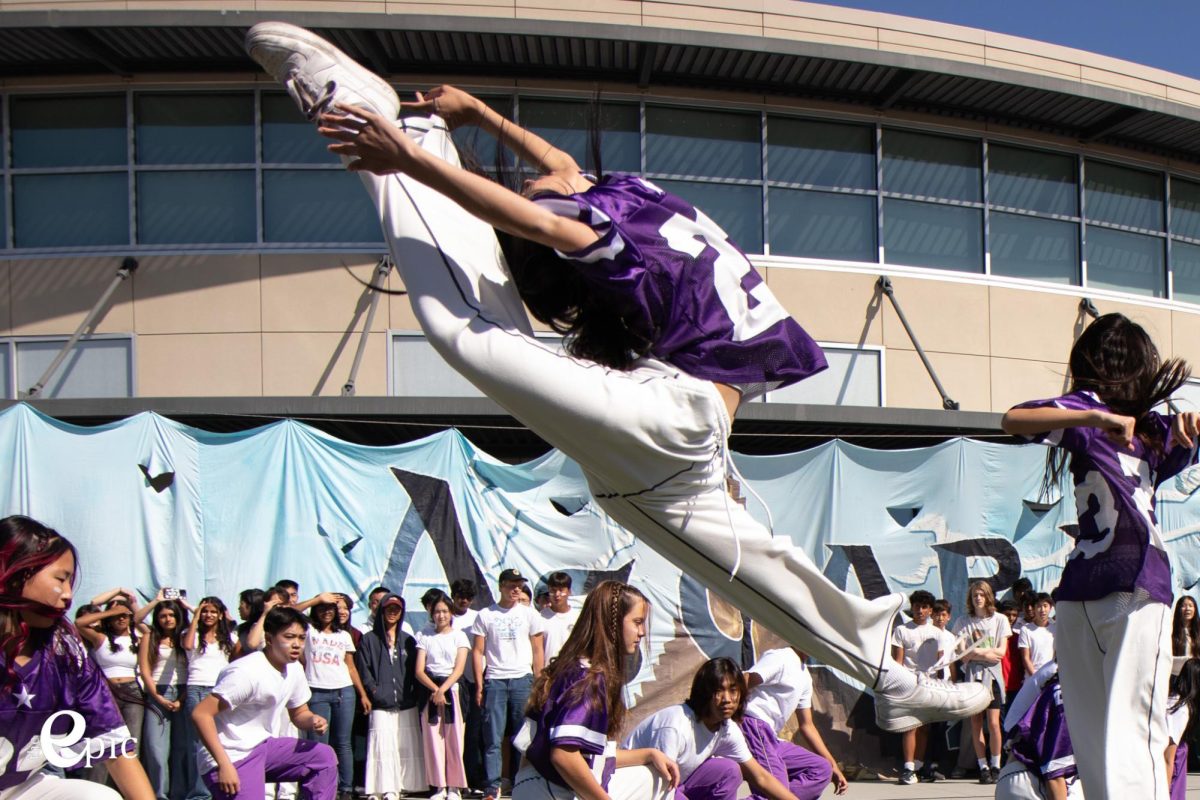Editorial: Social media usage gives candidates an unfair advantage
March 30, 2017
As campaign season rolls around, students’ Facebook timelines start to overflow with new profile pictures and long, persuasive messages in support of candidates running for ASB or class officer positions. The focus of ASB and class officer campaigns has shifted from on-campus to online campaigning over the past few years, and a strong social media campaign is now essential for success. Although online campaigning gives candidates a platform to detail their plans and ideas, it can also give an unfair advantage to certain candidates who have more followers or friends on their social media platforms, resulting in campaigns focused more on popularity rather than qualifications and ideas. The current system of unregulated online campaigning should be limited to solely a more equitable platform, such as the lhscampaign website, that allows candidates to detail their plans and students to ask questions.
“I don’t think social media is too essential in a campaign, although it can be a very useful tool, simply because we already do a lot of campaigning at school,” said sophomore ASB secretary-elect Emily Zhang. “We make posters and candidates do their best to try to talk to people. We have speeches, we have Q&A sessions, and I think that without social media, candidates might be more inclined to actually campaign in person and at school.”
Lynbrook’s current election system regulates the extent to which a candidate can promote their campaign on campus, but fails to do so online. For on-campus campaigning, the number of posters and flyers allowed on campus is limited to three posters and 10 flyers to ensure that all candidates get equal exposure and that students with more money to spend cannot overshadow their opponents. No regulations, however, are placed on online campaigns because of their nature and how hard they are to enforce.
“I think there are opportunities for us to review the current process and improve it,” said Assistant Principal of Activities and Athletics Anne Butterworth. “My concern is it’s important we don’t make rules we can’t enforce. I don’t have time to scroll through Facebook all day every day to see what someone’s posting online.”
Online, social media followers play a large role in the success of a candidate. Social media platforms such as Facebook and Instagram have algorithms that filter what is seen by users based on several factors, including how active the user is and who they interact with most on the site. These algorithms can result in less exposure for candidates who are not as active. Additionally, while sites like Facebook present many appealing methods for promotion such as profile photos, events and groups, those same features make online campaigning unfair. For example, candidates ask their friends to change their profile photos in order to show their support, as these endorsements help a candidate receive more publicity. Candidates whose friends may not be as active on social media, however, are at a disadvantage, as their friends would be less likely to participate in profile picture campaigning. Profile picture changes are also not always an accurate representation of who one actually supports, as many feel obligated to change their profile picture when a candidate asks them to. The current system puts too much of an emphasis on connections and less on actual ideas and policies, which is not what ASB and class officer campaigns should be about.
“[Social media campaigning] definitely isn’t fair because there’s a lot of factors that go into social media campaigning such as how active a candidate or their friends are on social media and how big their social media circles are,” said Zhang. “Social media can be a good thing and candidates can definitely use it to their advantage; however, I think it doesn’t really provide the best perception of the campaign and it can be unfair.”
Another disadvantage to using social media as the main source of campaign promotion is the sheer number of platforms that exist. While it may seem like sites such as Facebook are ubiquitous, not all students have accounts on or have access to them. Should a candidate choose to campaign on multiple platforms, they would be able to reach more students; however, candidates who do not have accounts on certain social media sites would be unable to reach out to as many prospective supporters.
“I think [social media] does give an unfair advantage, because if you as a candidate are more popular and if you have more friends on Facebook or have been on Instagram for several years, and then you post something regarding your campaign and elections, you tend to get more likes and more traffic overall,” said junior ASB IDC Representative-elect Anushka Srivastava. “But, if you just recently got an Instagram or a Facebook, and if you don’t have many friends on Facebook, you might not receive as much attention. Even though you’re trying to reach out to as many people as you can, it becomes harder on the people who haven’t been active on social media before campaign season.”
Online campaigning takes away from the true purpose of campaigns, which should be focused on which candidate can make a greater impact on the school and has the ideas and leadership qualities it takes to be a successful ASB or class officer, not who has more active friends willing to post on their behalf on Facebook or who receives more likes and comments on their campaigning posts. Taking away the social media aspect also encourages candidates to focus more on their on-campus campaigns and interact with more students. In doing so, candidates can further advance their campaigns by proving their willingness to get to know students and listen to student input. Additionally, in-person campaigns give voters the opportunity to get the most genuine sense of what a candidate is like.
“Actual campaigning should be talking to people and getting to meet people, rather than just making posts on Facebook, even though that can also be helpful,” said Zhang. “Social media doesn’t really give you the same learning experience as talking to people in person.”
Similar to the regulations placed on campaigns at school, stricter guidelines should be enforced in regards to online campaigns. The sole online aspect should be an impartial website such as lhscampaign, which would still allow candidates to share their detailed platforms and describe their ideas and plans. This site would allow students to ask candidates questions regarding their plans, giving them a chance to address concerns from the student body.
Eliminating the social media facet of campaigns will ensure that candidates are given a fair chance independent of their popularity or connections.
“I think the lhscampaign website is a really great initiative,” said Srivastava. “Not everyone is on the same social media platform; for example, the freshmen aren’t really on Facebook this year. They tend to use more of Instagram and Snapchat, whereas the upperclassmen are on Facebook. To reach a more fair and wider audience, lhscampaign is certainly the best way to go.”
Although social media campaigns undoubtedly offer several advantages, an equitable online platform is necessary to ensure that the campaigning process becomes less of a popularity contest and that no candidates receive an unfair advantage.
































































